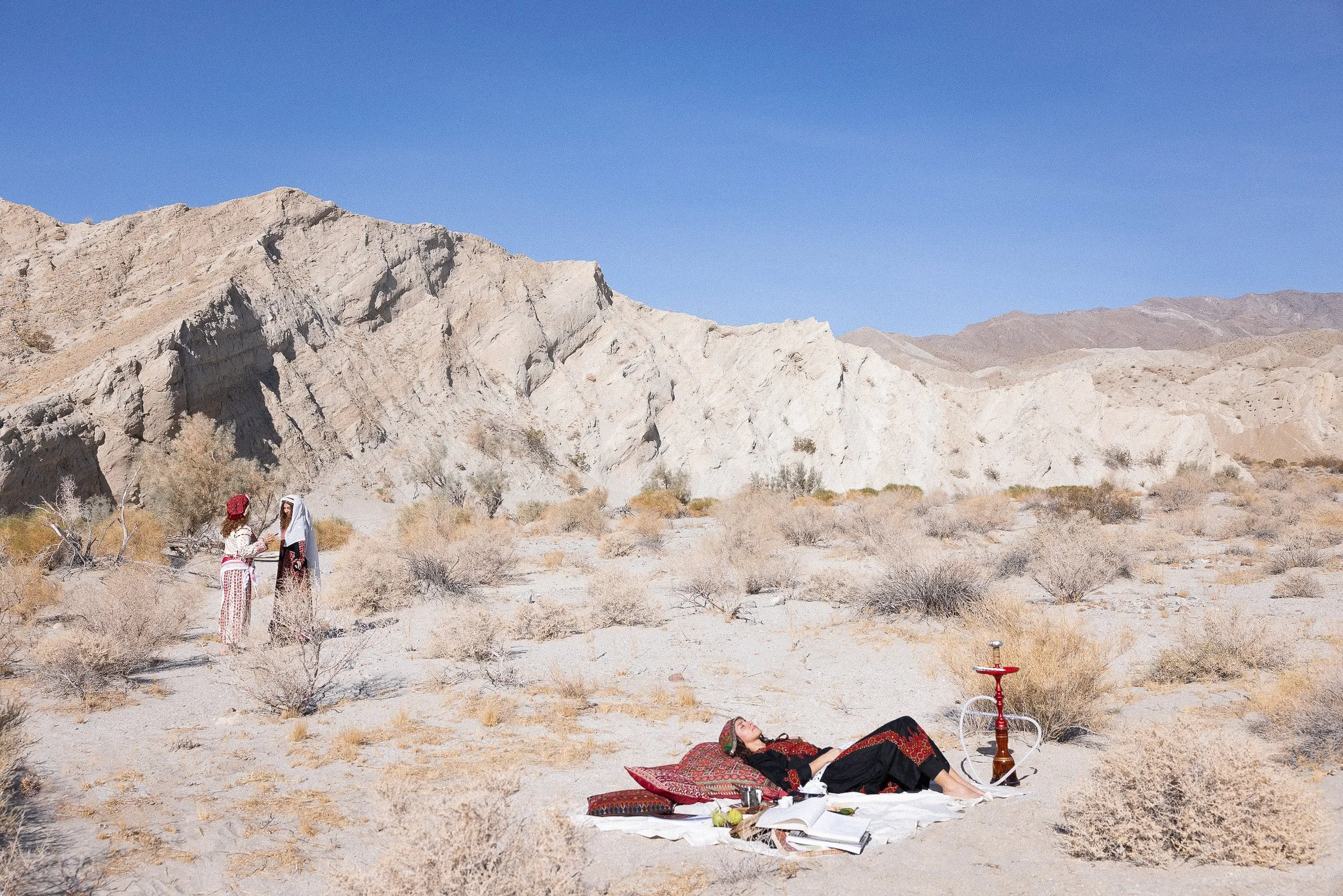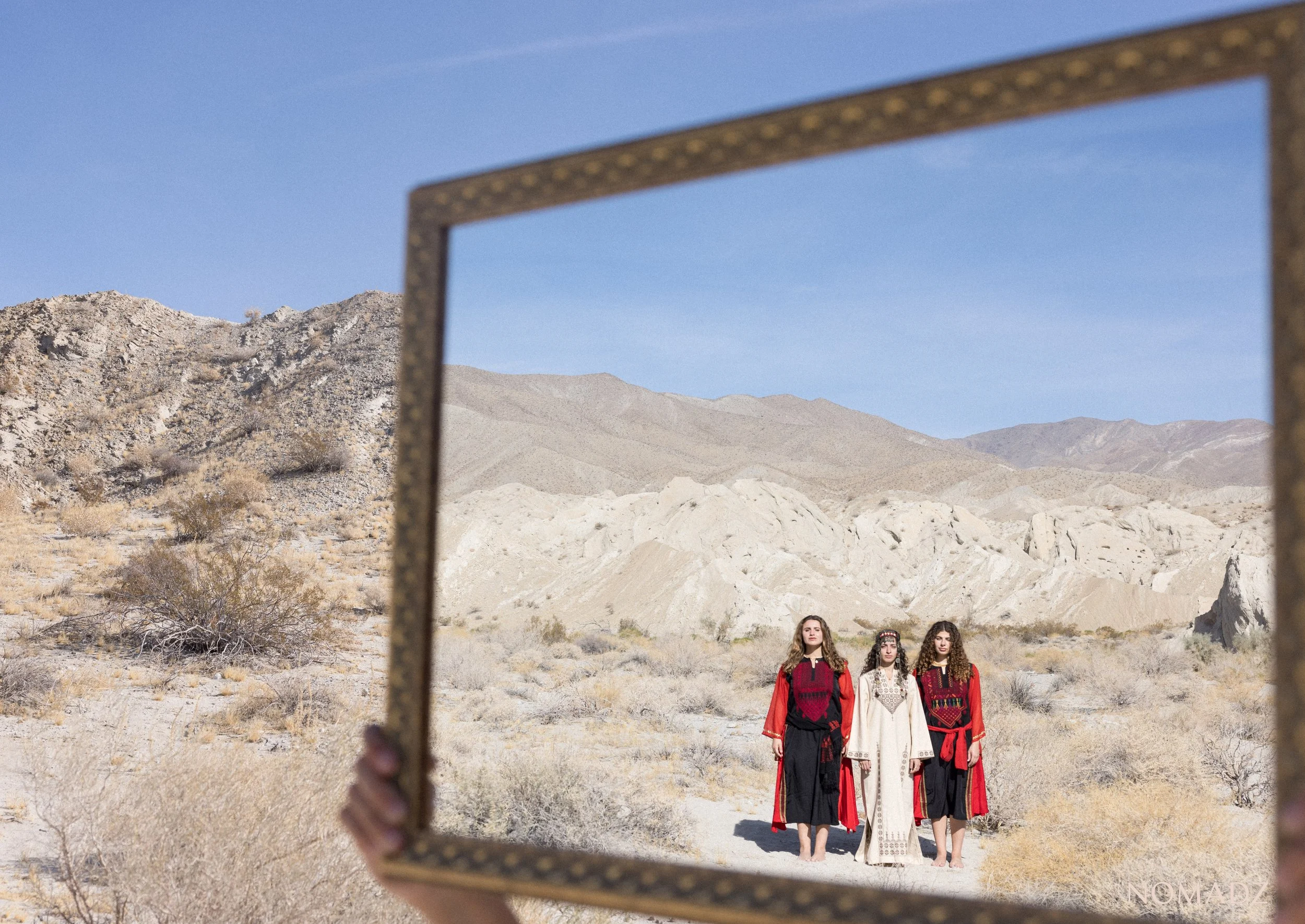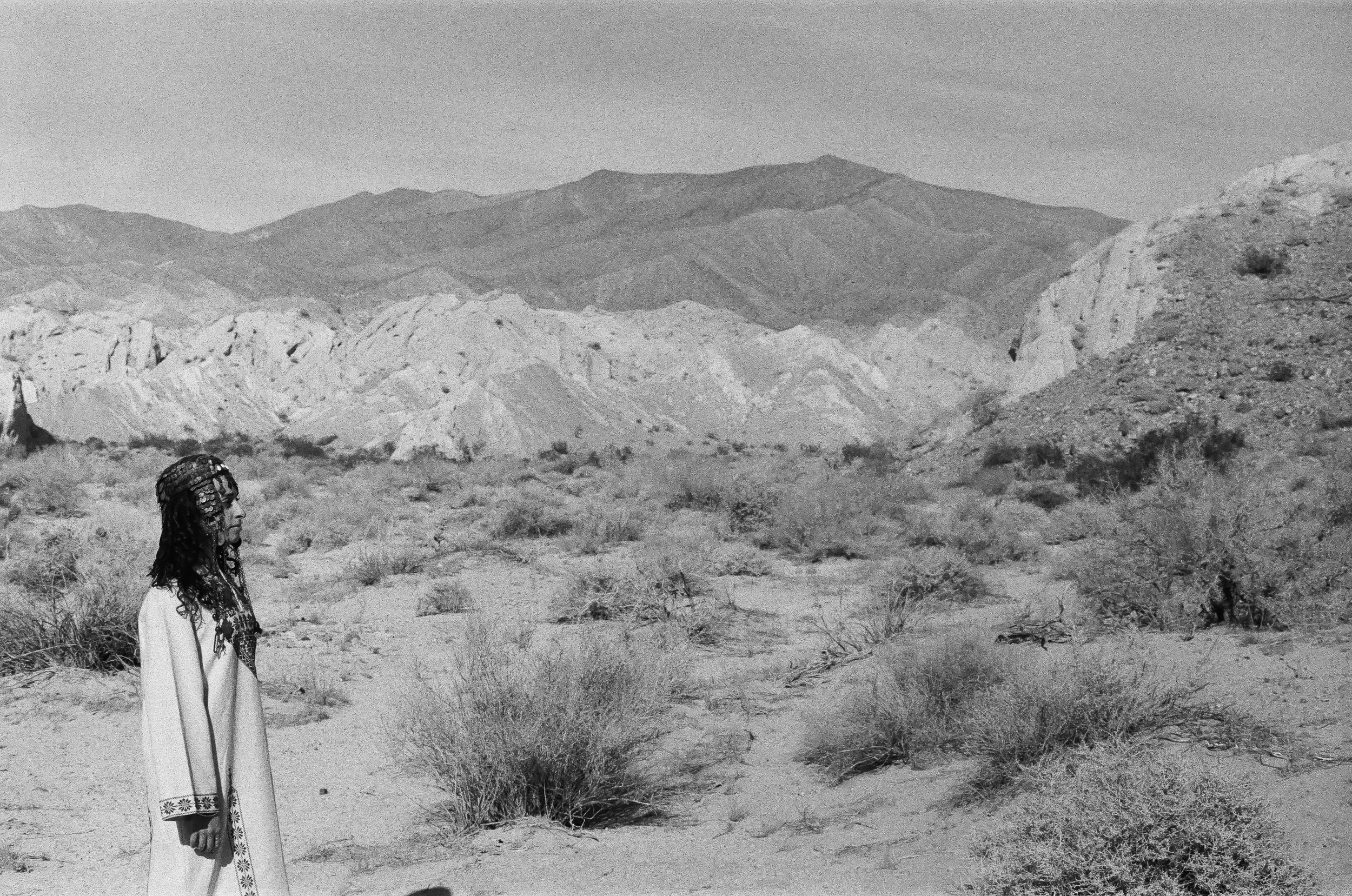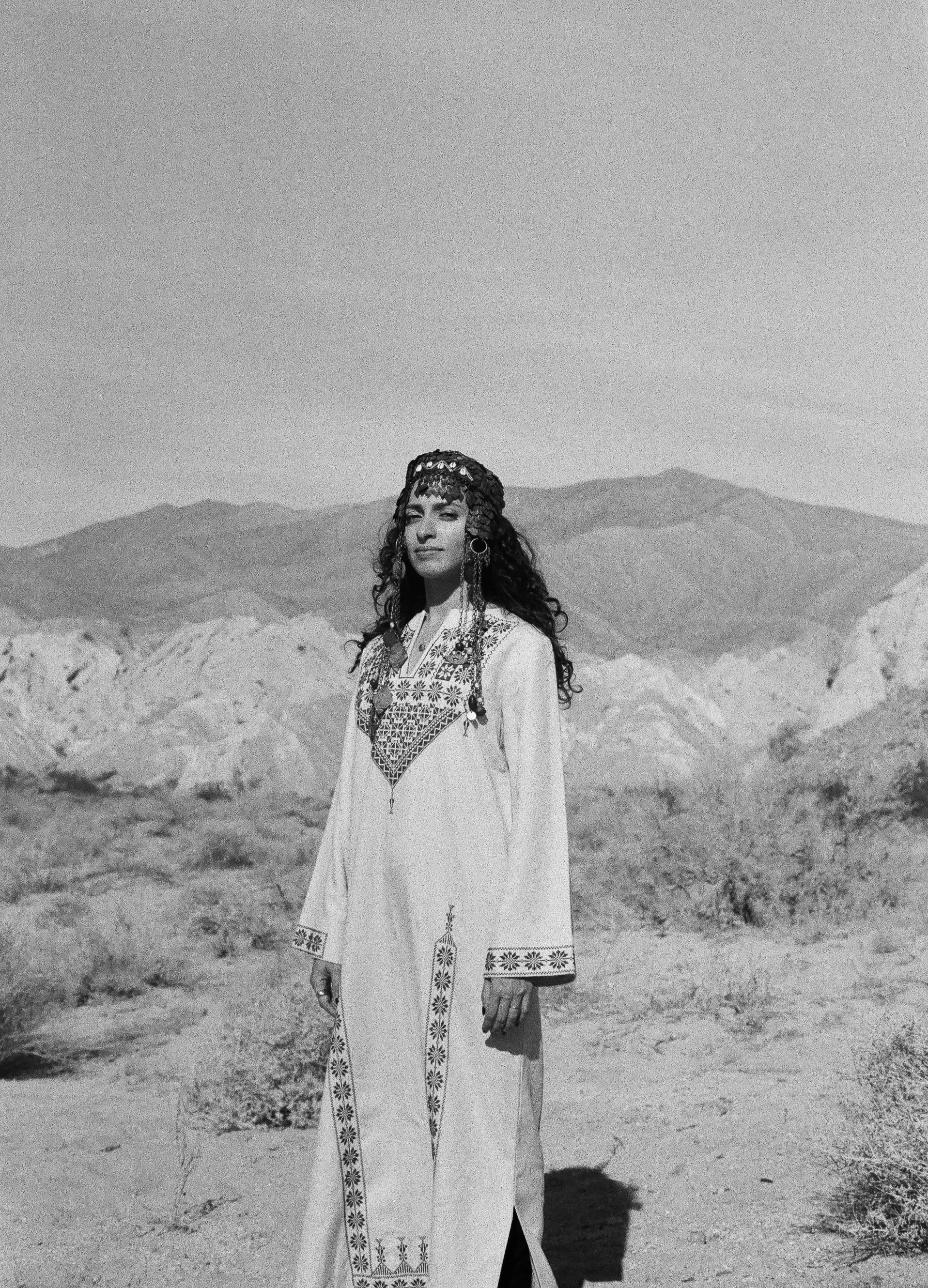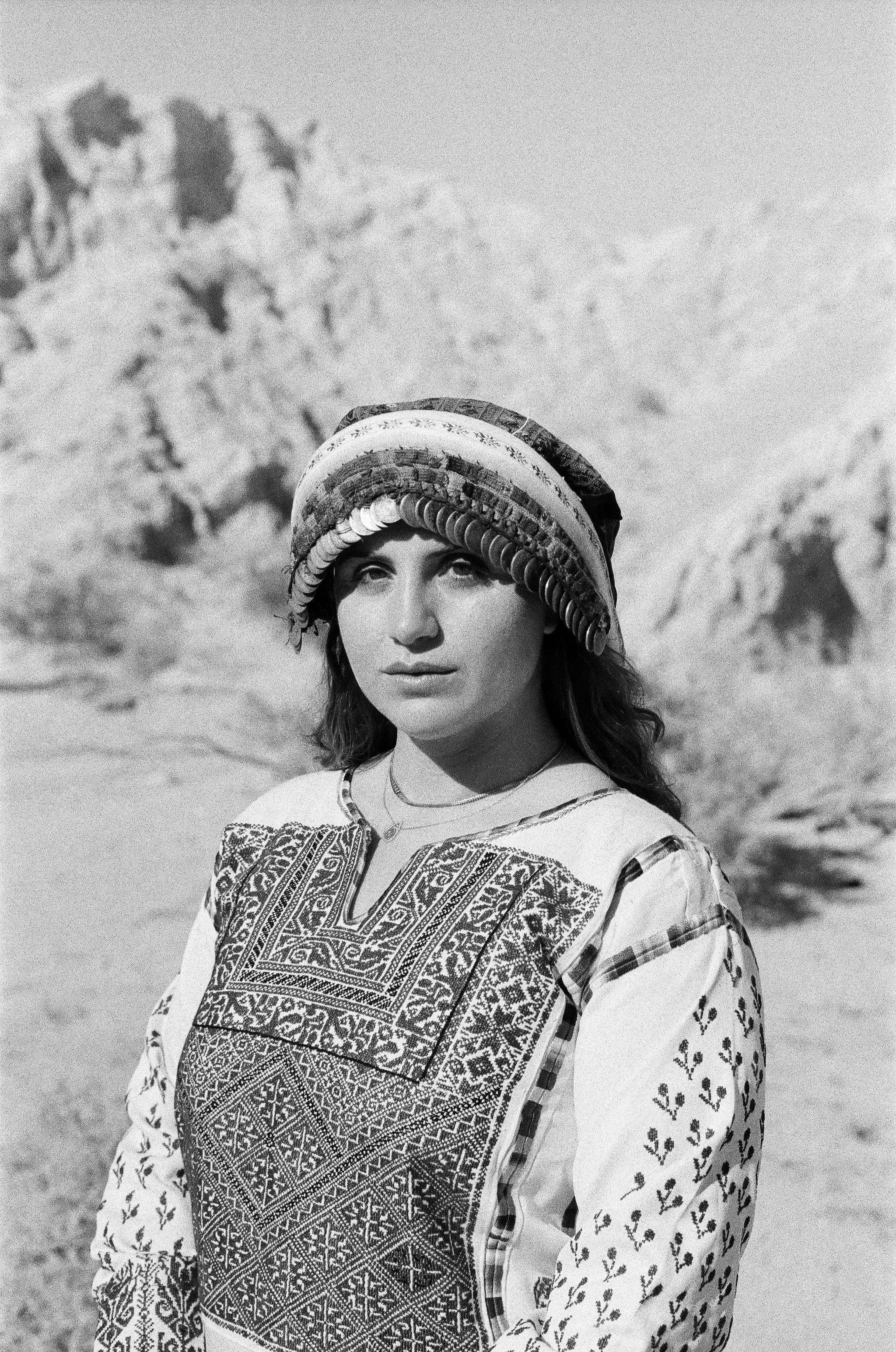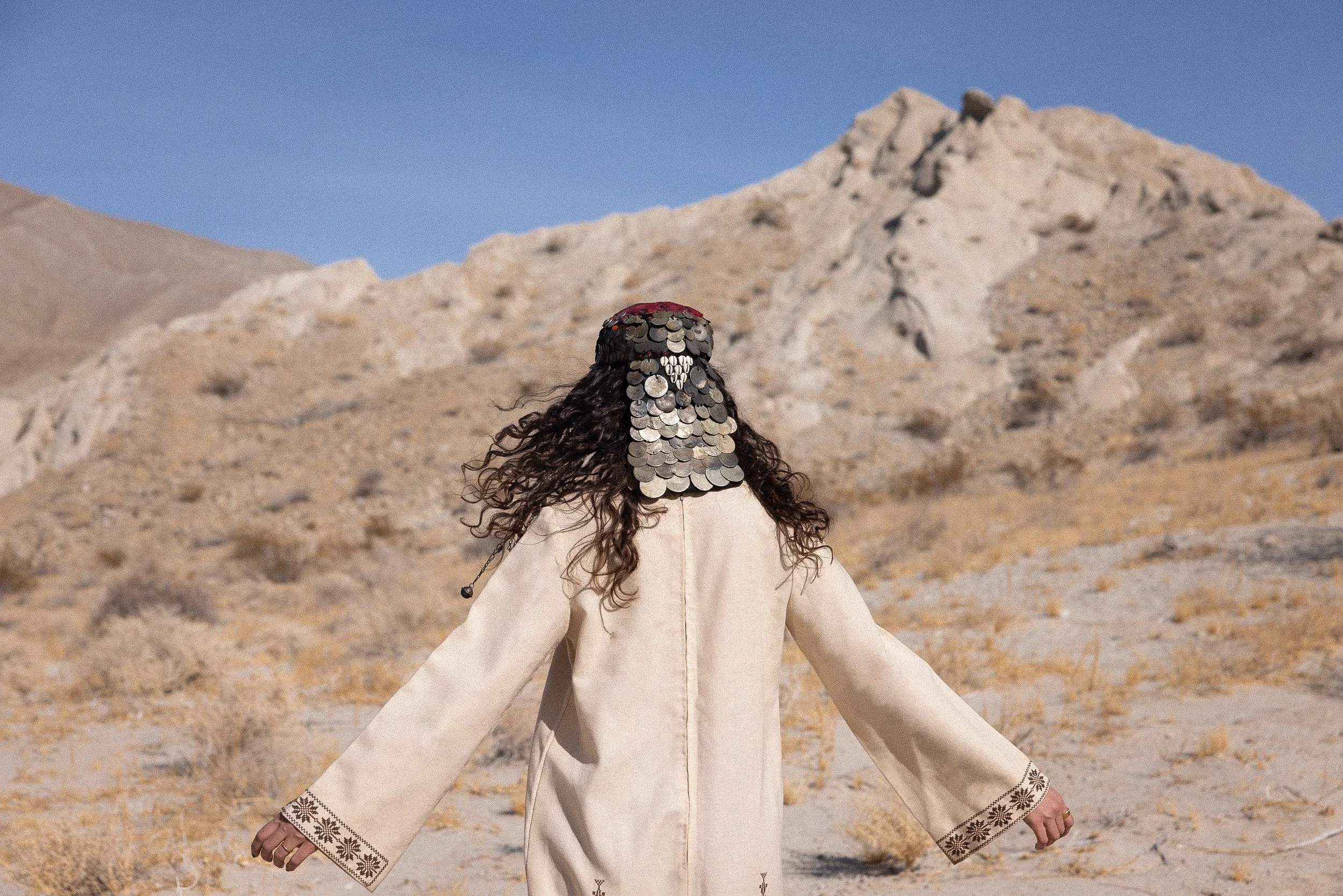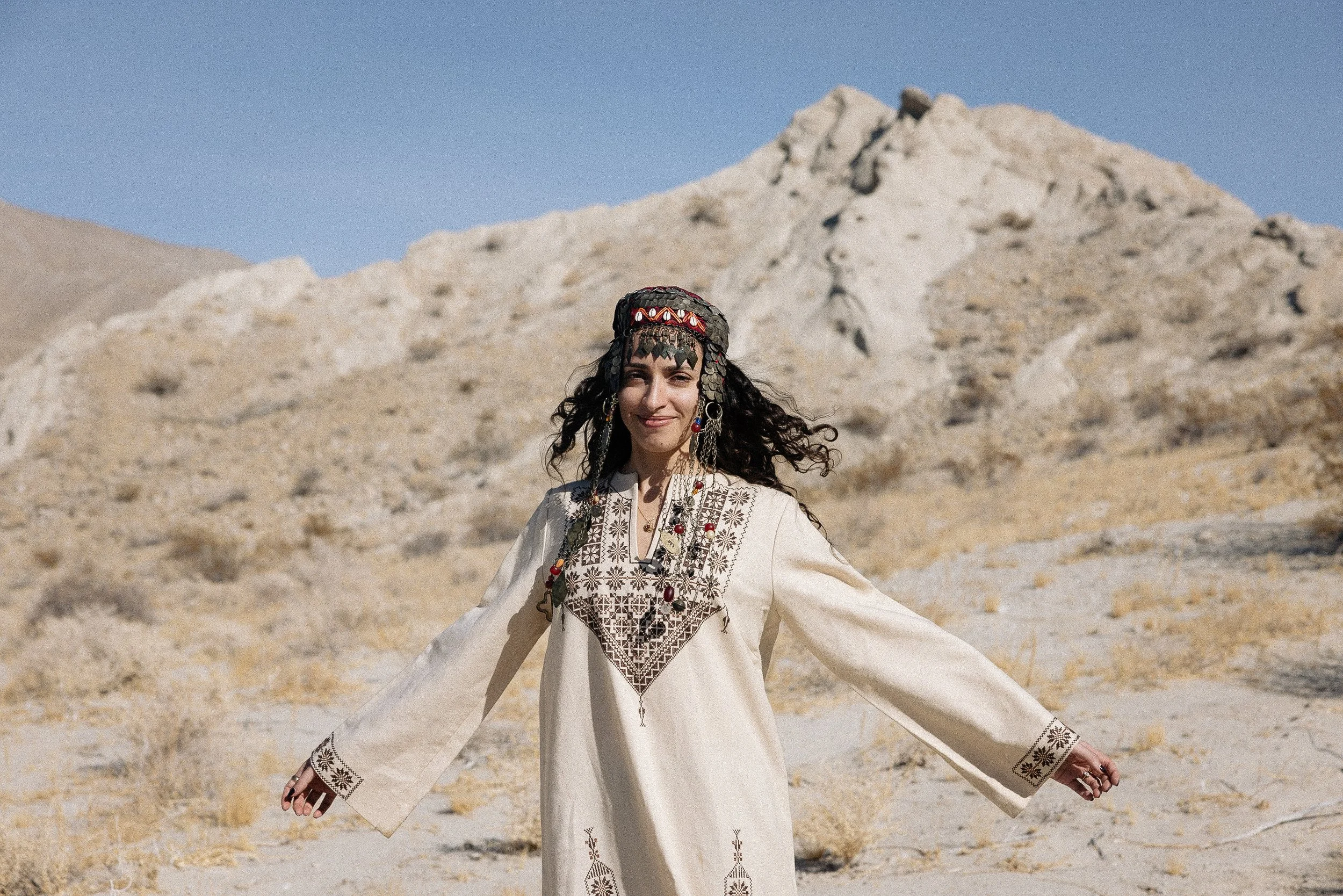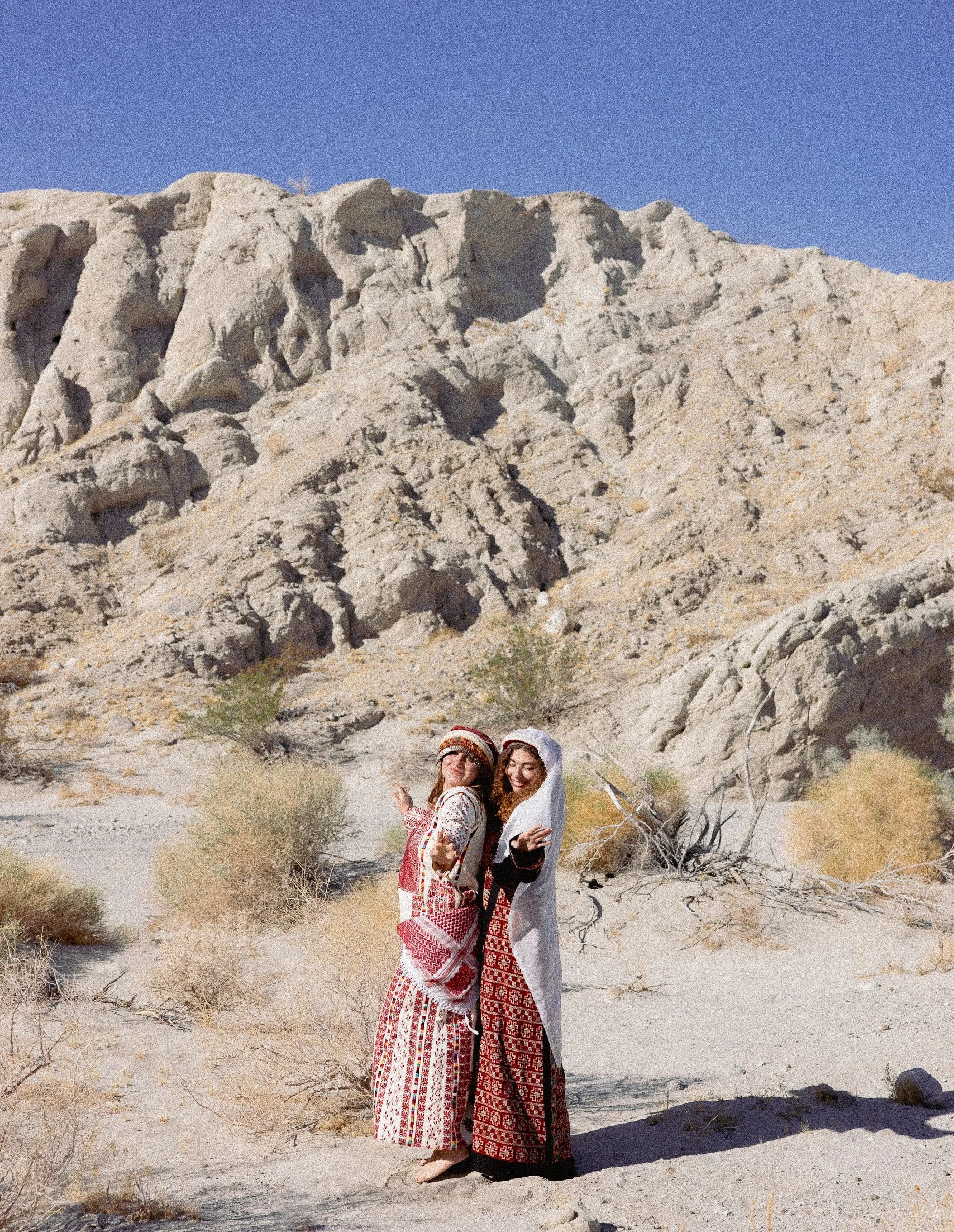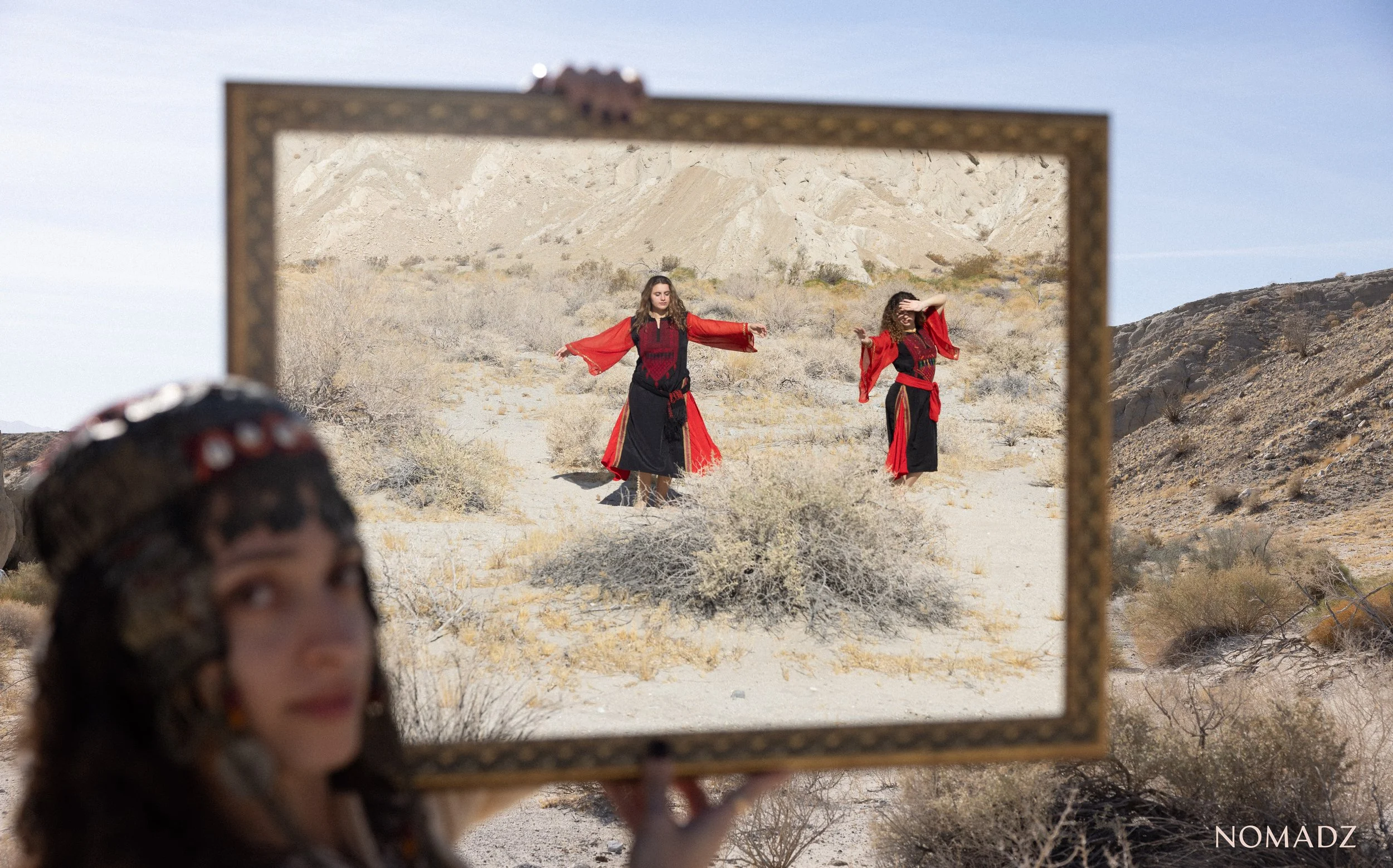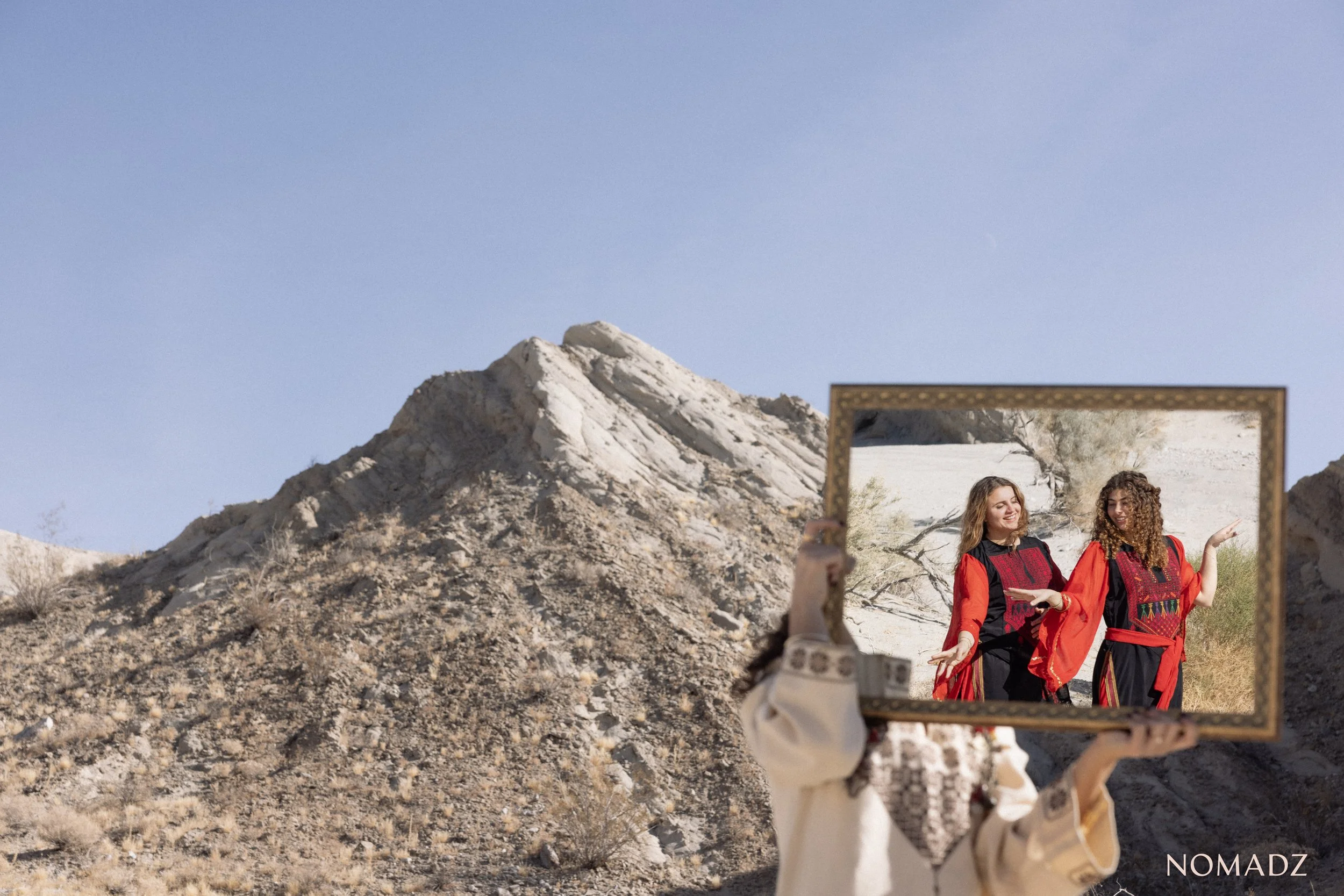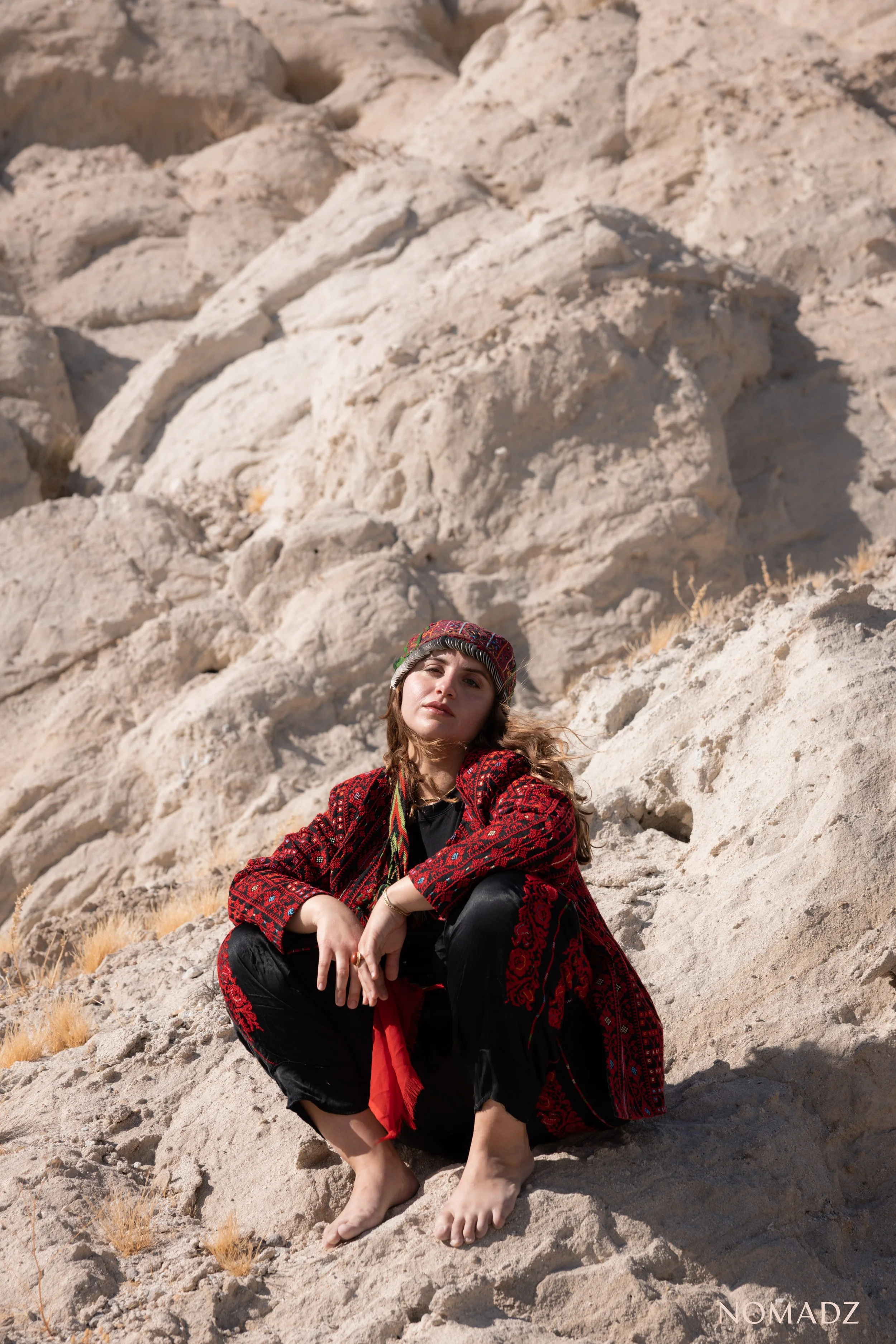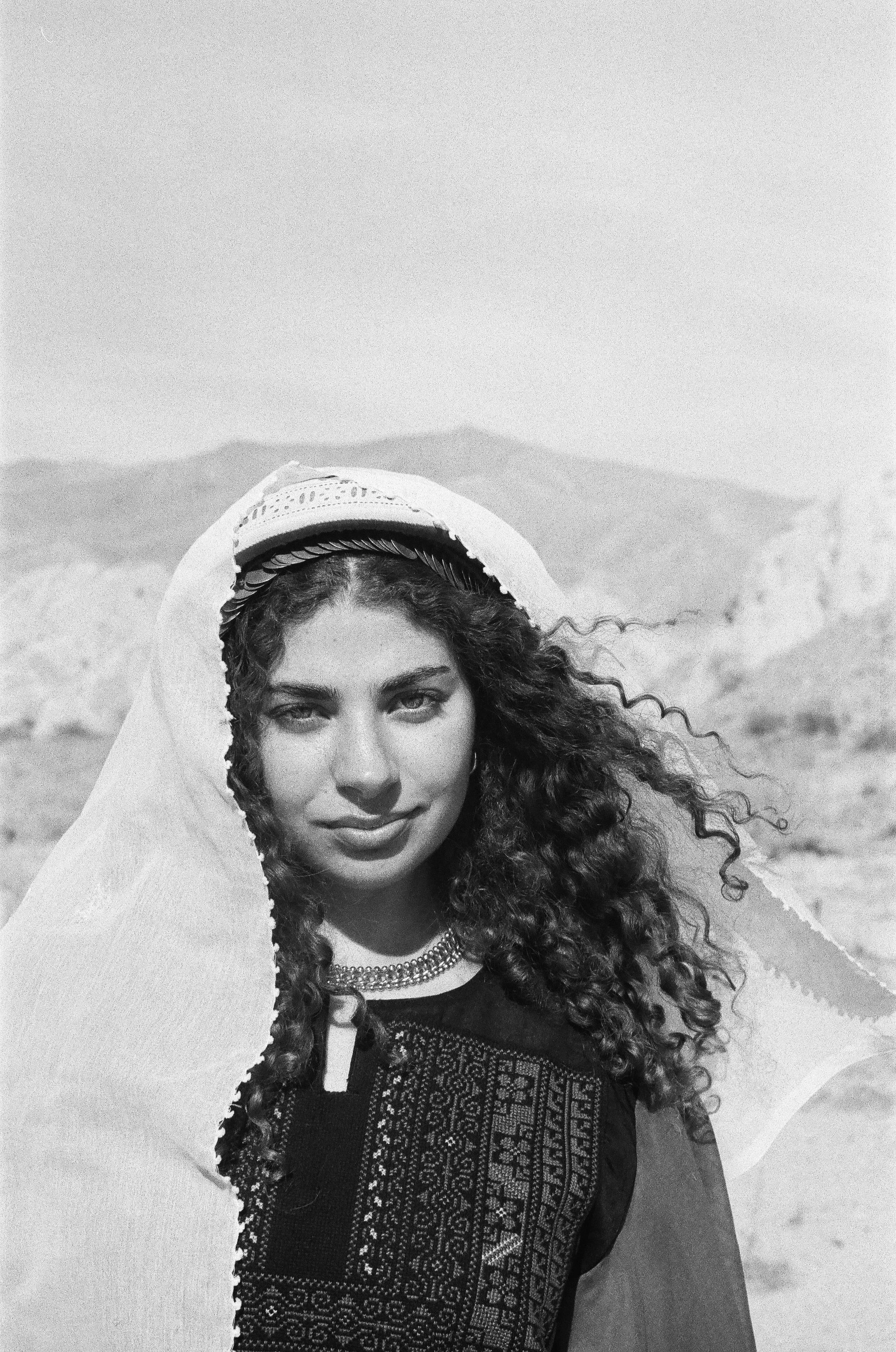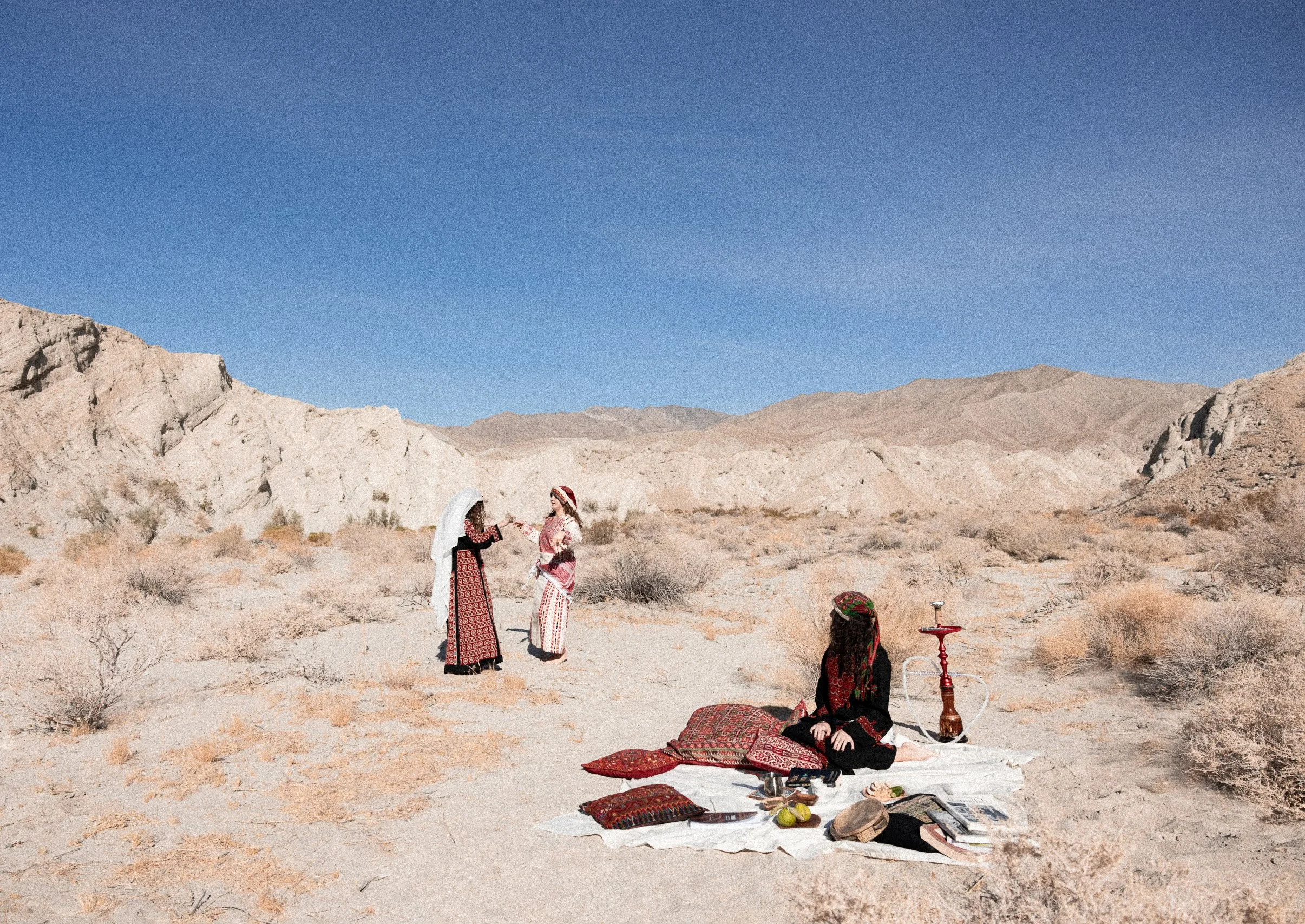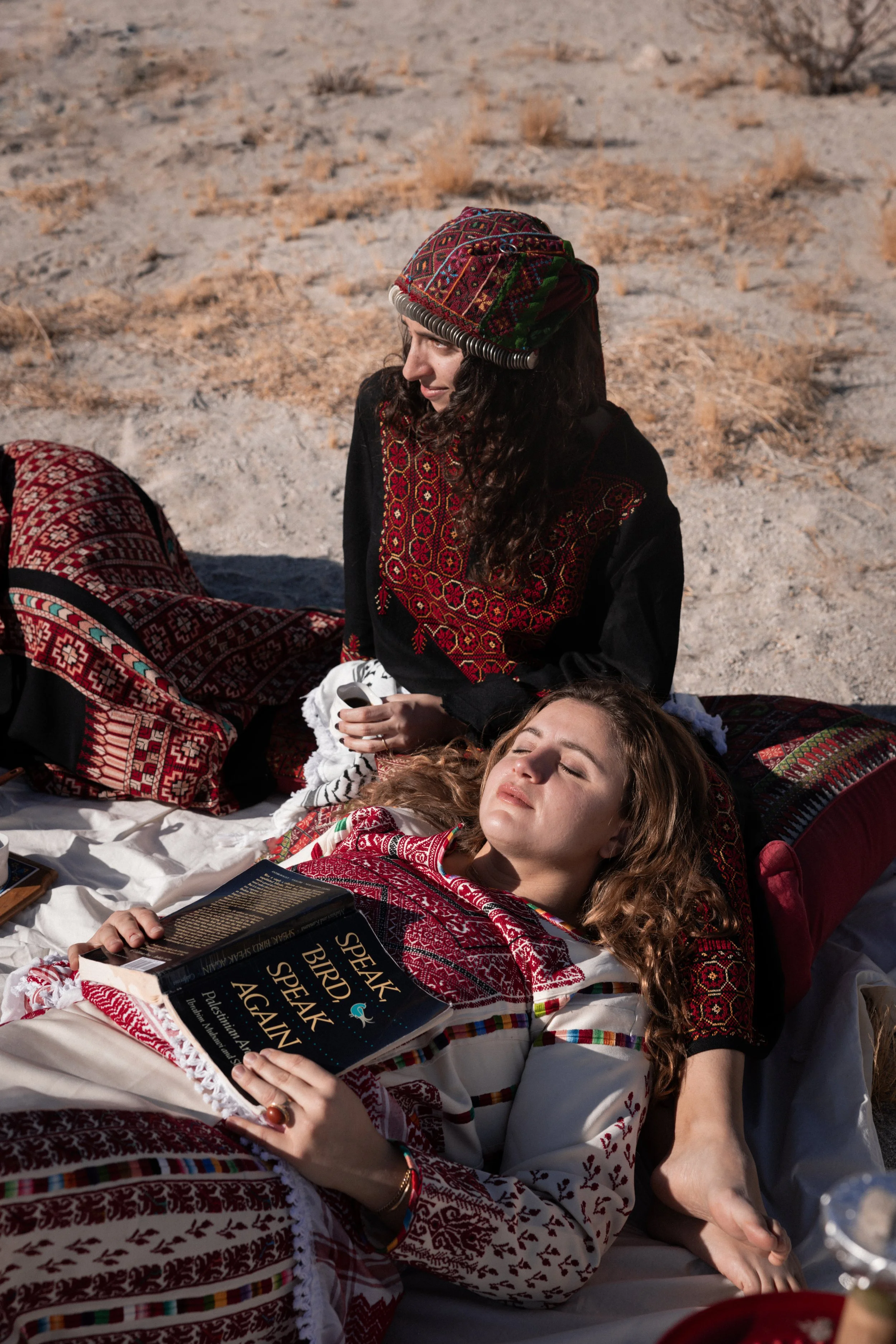As a Palestinian from the diaspora, I often find myself longing for how our ancestors lived prior to the occupation. My series “Where Are The Olive Trees?” was created to not only showcase the beauty of traditional Palestinian clothing, but to also question the absence of one of the most important symbols in Palestinian history. The olive tree has been a consistent factor in shaping what it means to be Palestinian. Olive trees have been growing in Palestine for thousands of years, and have been the essence of salvation and resistance to Palestinians. Palestinians partake in a yearly olive harvest, which provides them with their needs for the year. Whether the harvest is used to produce soap to distribute across the world, or to provide for families, they are an essential to a life in Palestine, making them a target of the Israeli occupation.
The settler colonial state of Israel has uprooted 1 million olive trees since 1967. These trees are essential for generational agricultural farming and living. This erasure is one of the many tactics implemented by the colonial entity to try and erase Palestinian history and existence. The absence of the olive trees symbolizes the past and present demolitions of olive trees across innocent farmlands in Palestine. Even though the olive trees are not shown in the images, the resistance and history of Palestine is told through literature, food, and more importantly, tatreez.
Thobes are traditional dresses worn by Palestinian women, and known for the intricate hand stitched embroidery, tatreez. By the mid-nineteenth century, tatreez motifs were largely geometric and stylized, drawing inspiration from landscapes, plants, and animals. It wasn’t until after the first Intifada in 1987, where thobes gained major cultural significance. Palestinian women would embroider with the colors of the Palestine flag, a response to the illegalization of possessing or displaying the Palestinian flag on their land.
A thobe marks a woman’s life and explicitly conveys her story through the needlework techniques she employed. Whether worn during celebrations or preparing meals for their families throughout generations, thobes have been a staple in Palestinian homes since the 11th century.

